We don’t see things as they are – we see them as we expect them to be – Adam Grant
Life is much easier to understand and live if we have two approaches to two fundamentally different concepts.
A changing self.
Let’s call this one the Game of Self, your way to the happy being you would like to be one day.
What’s in the Game of Self? Simply everything inside you, consciousness.
A changing reality.
Let’s call this one the Game of Life – you create the environment you would like to live in one day.
What’s in the Game of Life? Simply everything outside you, reality.

Every time we encounter a challenge, we can ask, Is this a Game of Self challenge or a Game of Life one? Is the problem in my head or based in reality? And if the answer is “it’s both”, then we know to dive deeper until every element takes only Game of Self or Game of Life skills to fix. Otherwise, we set ourselves up to keep walking into the same old trap – Expectations vs reality.
Mixing up the self and reality parts together is often paralyzing and can be the main reason people get stuck in life. You’ve heard of the golden rule not to mix facts and feelings in conflicts? It’s the same thing.
Feelings are exclusively Game of Self, and facts are exclusively Game of Life.
Reality and the Game of Life
From a personal perspective, the Game of Life is all about gaining and Sharing resources. This would not be effective if we are out of touch with reality. So, who are the reality experts?There’s a breed of trolls, millions of them, working to understand reality.

They like nothing more than proving each other wrong or at least inaccurate. They use a tedious method of checking every concept they can think of (a hypothesis) for logical issues (does it self-contradict?) and to all other already confirmed hypotheses (theories or theorems).
The trolls are called scientists, their way is called the Scientific method, and their mission is to find out how the world works. Thanks to this, we can measure and even predict reality to a degree (for most stuff, that is). The principle is that while most ideas are wrong, the best ones survive all the tests.
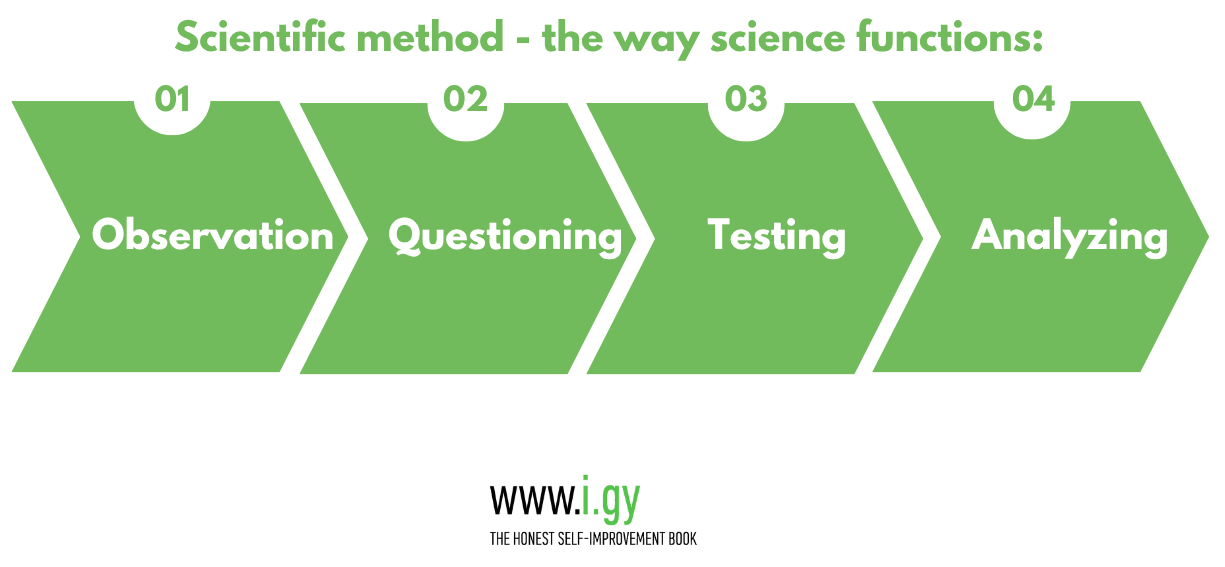 While mistakes happen and the whole picture is incomplete in many complex areas, Science and the resulting technology have been the main drivers of human Progress throughout history. It’s the best tool in your quest for Reality. Denying the scientific method would be denying common sense itself.
While mistakes happen and the whole picture is incomplete in many complex areas, Science and the resulting technology have been the main drivers of human Progress throughout history. It’s the best tool in your quest for Reality. Denying the scientific method would be denying common sense itself.
No matter how good we think we are at predicting, reality always manages to surprise us.
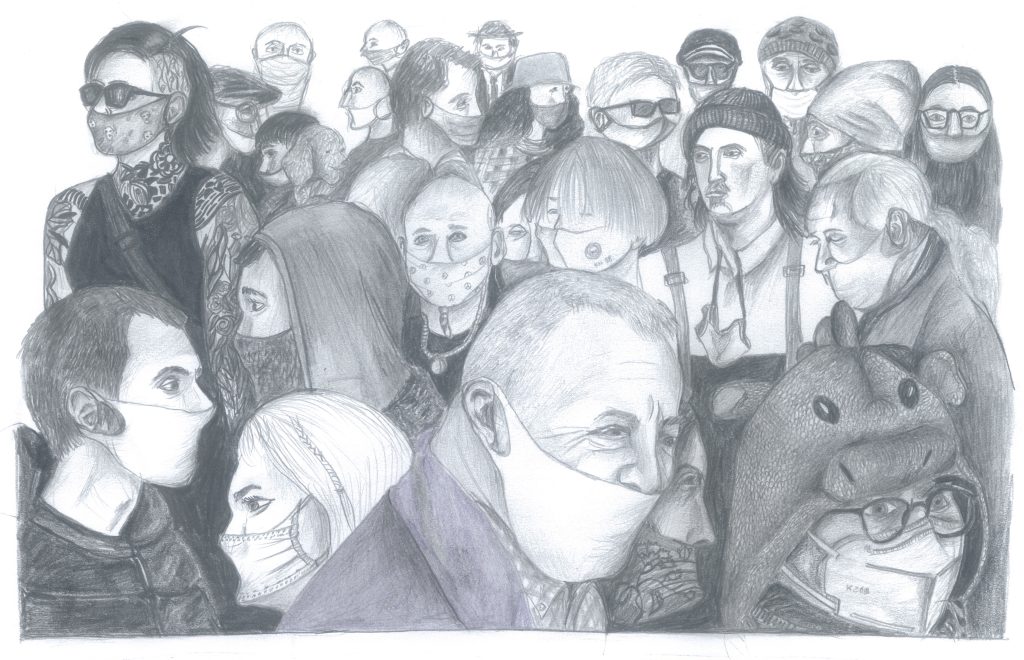
But the predictions that actually do work are very important. The predictions of bridges, tunnels, and skyscrapers not collapsing are thanks to the results of the scientific method. The ones that help us understand the human brain and body so we can cure and prevent disease.
We take all this for granted, but in doing so, we forget what got us here in the first place. This is a major problem for the future progress of mankind, as we still need and will always need science in a changing world.
How do we progress in the Game of Life?
To move forward in the Game of Life, we need to work skillfully with science, people, concepts, and Resources.
- Use the scientific method: You can apply the scientific method to your everyday life when you only make conclusions after you observe, question, test, and analyze. This way, your solutions will be truthful and help you move forward in the Game of Life.
- Work at understanding the human mind: Most good things in life happen when other people share your ideas, resources, and goals. But people – they’re complicated. To work with them well, you need an understanding of human psychology.
- Find patterns in life: Although reality is a Chaos and unpredictable, human behaviour and fate aren’t as much. There are patterns you can rely on for guidance, but in the end, your most reliable tool is Diversity of Experience.
- Recognize resources: resources are all around us, in shapes and forms we might not expect. Our ability to acquire them corresponds most of all to our ability to recognize them.
Once we have all the tools to see the world for what it is, let’s explore all the resources we have to change it.
The main resources in life are:
- Freedom
- people
- health
- assets (eg, Money)
Game of Life success looks like:
You’ve removed inertia from being the driving Force in your life, and you’ve learned to intuitively evaluate, attract, and share resources.
Your Head and the Game of Self
What’s in your head? A mess of images, feelings, and thoughts moving forward in time. Scientists call it consciousness, but this word is too complicated and obscure. Let’s call it the picture. The picture in your head is your ever-changing, inaccurate perception of reality mixed up with your thoughts and feelings. A constant dance of prediction and observation, both external and internal.
Everyone else is just the same mess, don’t worry!
Your superpower in the Game of Self is knowing how to direct your attention productively and actually being able to.
There are a few common directions you can point it to:
- Game of Self – Self-love and understanding, Learning, creating, meditating, etc.
- Game of Life – most everyday activities like meeting people, moving, working, eating, etc., surviving.
- Underworld – when primal urges take over. Chocolate, gambling, and scrolling social media.
- Probabland – when primal fears take over. Our perceptions of other people’s thoughts and feelings.
The picture strongly prioritizes the current moment. If a memory (past), expectation (near future), or dream (far future) is part of the present moment, it has to be significant.
Thinking about the past is drawing a picture of a picture.
Letting the original picture stay in place, unchanged, and looking at it in perspective gets you much closer to the truth, rather than actively analyzing (redrawing) it. Otherwise, your picture of the picture usually shifts away from reality. If you have self-knowledge (know/feel how you draw pictures), you can get closer to what reality actually was over time.
Any analysis of yourself is drawing a picture of a picture.
Remember, you kind of suck at this! At I Grow Younger, we believe it’s better to focus on the good in the Game of Self. This way, destructive thoughts and feelings will run out of space and resources in your head and fade away. This is valid for most people most of the time, and may not be the right strategy in cases where trauma is affecting your life.
Expectations are like drawing a picture of something you've never seen.
Expectations about the future are like drawing a picture of something you’ve never seen and hoping to nail it between millions of possibilities. When you don’t get it right, relax. It’s how stuff is supposed to be. Even better, ditch your expectations, especially about other people and probabland.
If you do manage to fulfill your expectations often, there is a risk that you’ve become narrow-minded and you’re passing on the wonderful random turns of life, for the sake of fulfilling expectations. Beware.
Analysis of others' past thoughts is a picture of a picture of a picture.
Boy, is this hard… and useless.
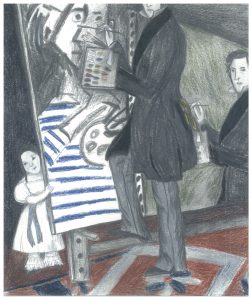
If you want to know how someone feels or their Motivation, don’t ponder; rather: If you care about the person, ask nicely. You may be surprised. If you don’t care, it’s probably not worth your thoughts either.
People spend a lot of Time focusing on these, but do we really believe that we’re that good at drawing a picture of a picture, in our heads? And now that we’ve gotten to it, let’s talk about probabland – the place we all spend too much time in, probably.
Probabland: The Other People in Our Head
Probabland is the place with other people’s thoughts, which we, unfortunately, give way too many fucks about.
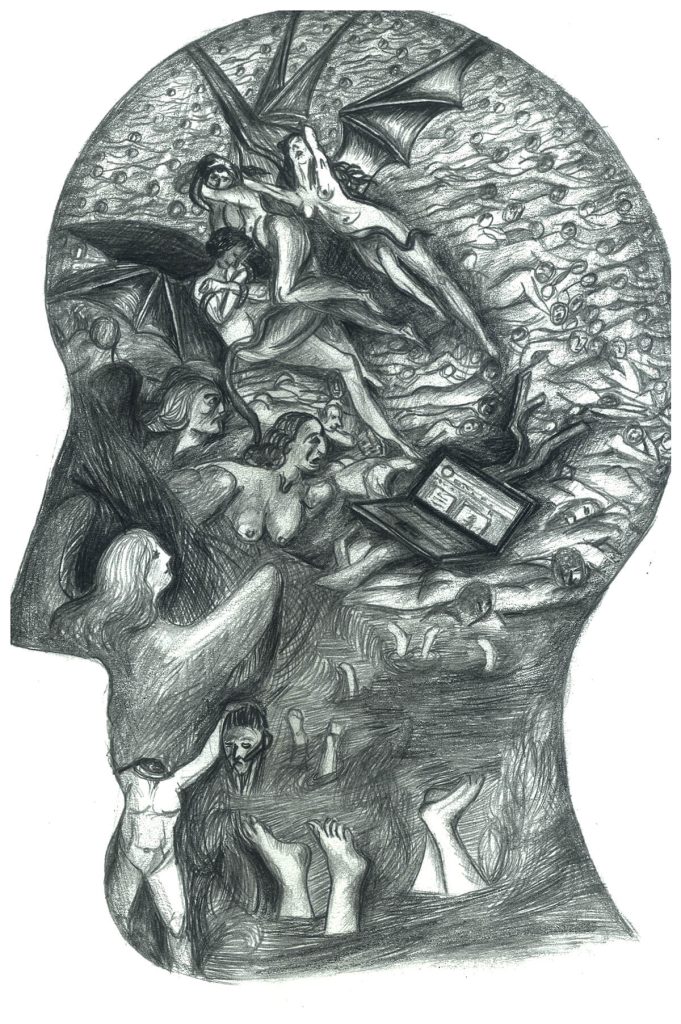
People’s feelings, thoughts, and motivations are changing, fluid, and impossible for us to know for sure. When it comes to other people, our expectations versus our reality never work out the way we might think.
Let’s call this uncertain space hidden behind reality probabland because everything there is at best probably true and may not be true soon after. People and their thoughts change often, following the randomness of their environment. The science of these probabilities is called psychology. While it can’t tell if you are exactly 73% happy at the moment, it can tell you the best practices that will probably make you happier.
Thinking about what others think about you is painting a picture of a picture. It’s the hell of probabland and a place to avoid. The skill to do so will be discussed in depth in I Grow Younger.
And guess what? Thinking about what others would think about your potential future actions is painting a picture of a picture of a picture.
I don’t need to explain the epic worthlessness of this, but we’re all naturally prone to it.
I want to help you ditch it down the drain. Understanding why we do it and how ineffective it is are the first steps.
Our genes want to survive and get passed on. Humans terribly fear a loss of connection with other people because, in the not-so-distant evolutionary past, life was tough, and you were dependent on a tribe to survive. Our genes evolved to blend in at all costs so we’re not kicked out of the group. This is why it takes so much effort to be a nonconformist. It sucks to care about what others think so much, I know. But it’s built into our genes, and we need to deal with it, letting it bring more love and connection into our lives, instead of worry and dread.
Probabland is a hell of an unproductive place to be in, as it combines the worst of both worlds.
Probabland often looks like an iceberg where small warning signs sit on top of huge fears and insecurities (not to be confused with Freud’s Iceberg). While classic psychology suggests always fixing this starting with the hard part (the bottom),1 new psychology trends suggest braver real-life actions can start healing us from the top.2 Regardless of the specifics in each individual case, it’s always a good idea to be braver and care less about other people’s opinions of you.
This huge problem is largely hidden because we spend time in probabland almost exclusively when we’re alone. In fact, it’s possible for you to spend hours in probabland, without your loved ones even noticing. Activities involving attention and decision making (sports, games, conversation, etc) are the best way to get yourself out of probabland.
But as probabland is a tiring and unhappy (although tempting) place to be, there is another dark, but “happy” place to be. When you don’t feel like progressing in the games, when you want to hack into Happiness immediately, you go to…
The Underworld
This powerful meeting point of reality and the self combines all the tempting places your primal instincts want you to escape to, in order to get a dopamine spike. Everything in the underworld is a coping mechanism, helping only in the short term.
When you need to “reset” or heal from recent damage, the underworld may briefly help you, but you have to be very aware of the dangerous tools you’re relying on. In general, this is the most harmful place to spend your time in, both for your Game of Self and Game of Life.
The underworld comes in 3 variations:
- Mindless underworld
- Escapist underworld
- Delusional underworld
The mindless underworld
Here lives everything that neither makes you happy long term nor is useful to you or anyone else.
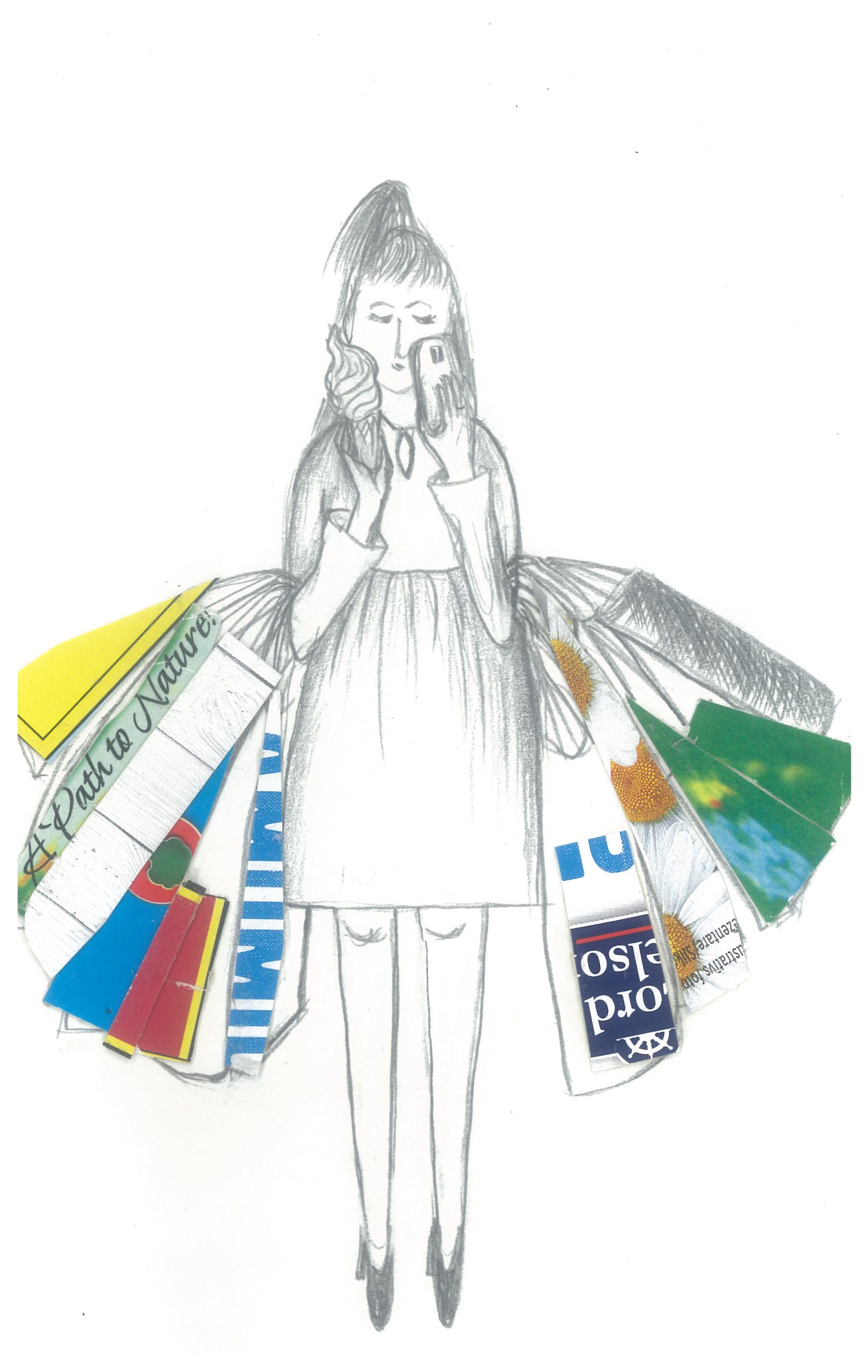 Of course, nothing helping you in the Game of Self or the Game of Life counts here. Reading a good book or watching a good movie is not in the underworld. However, watching the news on TV, scrolling social media, or watching all of Friends for the 5th time alone is likely part of the mindless underworld. It’s true, watching shows you’ve already seen can decrease feelings of anxiety, but so can reading a book, exercising, meditation, and these don’t contribute to Sheep mode, unlike the mindless underworld.
Of course, nothing helping you in the Game of Self or the Game of Life counts here. Reading a good book or watching a good movie is not in the underworld. However, watching the news on TV, scrolling social media, or watching all of Friends for the 5th time alone is likely part of the mindless underworld. It’s true, watching shows you’ve already seen can decrease feelings of anxiety, but so can reading a book, exercising, meditation, and these don’t contribute to Sheep mode, unlike the mindless underworld.
Is it really improving your mental state, your life skills, or is it simply allowing you to pass time?
The escapist underworld
You’re in it when you attempt to replace your reality with another.
The most distinctive and dangerous trait of the escapist underworld is how addictive it is. Most escapist activities are harmless in moderation, such as playing a complicated PC game or reading fantasy books.
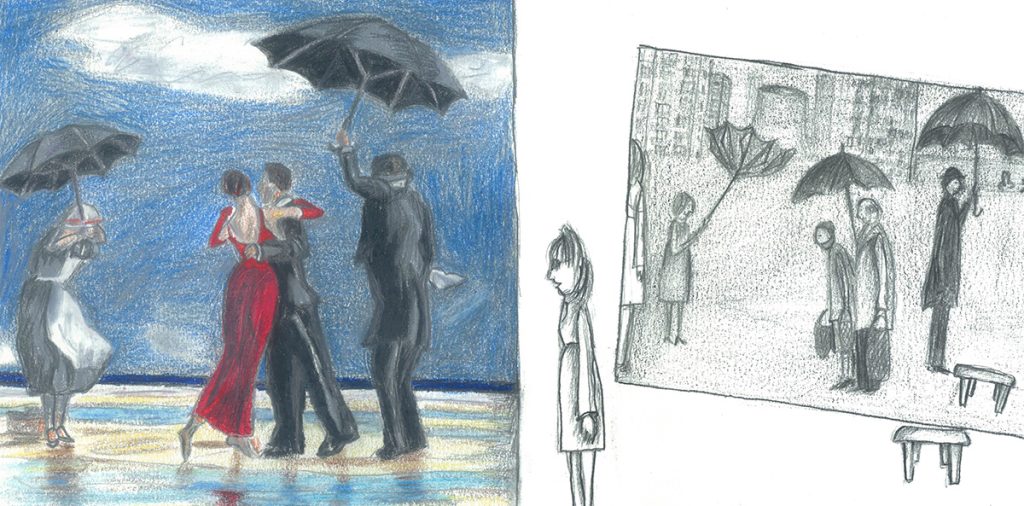
I personally got rid of mild depression in high school after becoming good at a PC game and can testify to how mentally rewarding it can be. I prefer not to talk about actual drug addiction here because I’m not a medical professional, but it would fall under the same category, with even bigger consequences. It’s hard to moderate your escape to another world when it’s specifically designed for your pleasure. Gaming addiction, gambling addiction (Reid 60-74), and substance abuse are on the rise (Tsamitros et al. 1-9) in recent years, showing a compulsive human need to escape reality.
The delusional underworld
The land of the beautiful… that is unlikely to be true.
The delusional underworld includes:
- Everything extremely improbable that science hasn’t confirmed and can’t disprove (eg, Aliens have visited Earth)
- Everything science has disproved, but you don’t care to explore the debunking (e, Mother Teresa was helping the poor)
- Everything political we can be manipulated to believe in (eg, Communism for a North Korean)
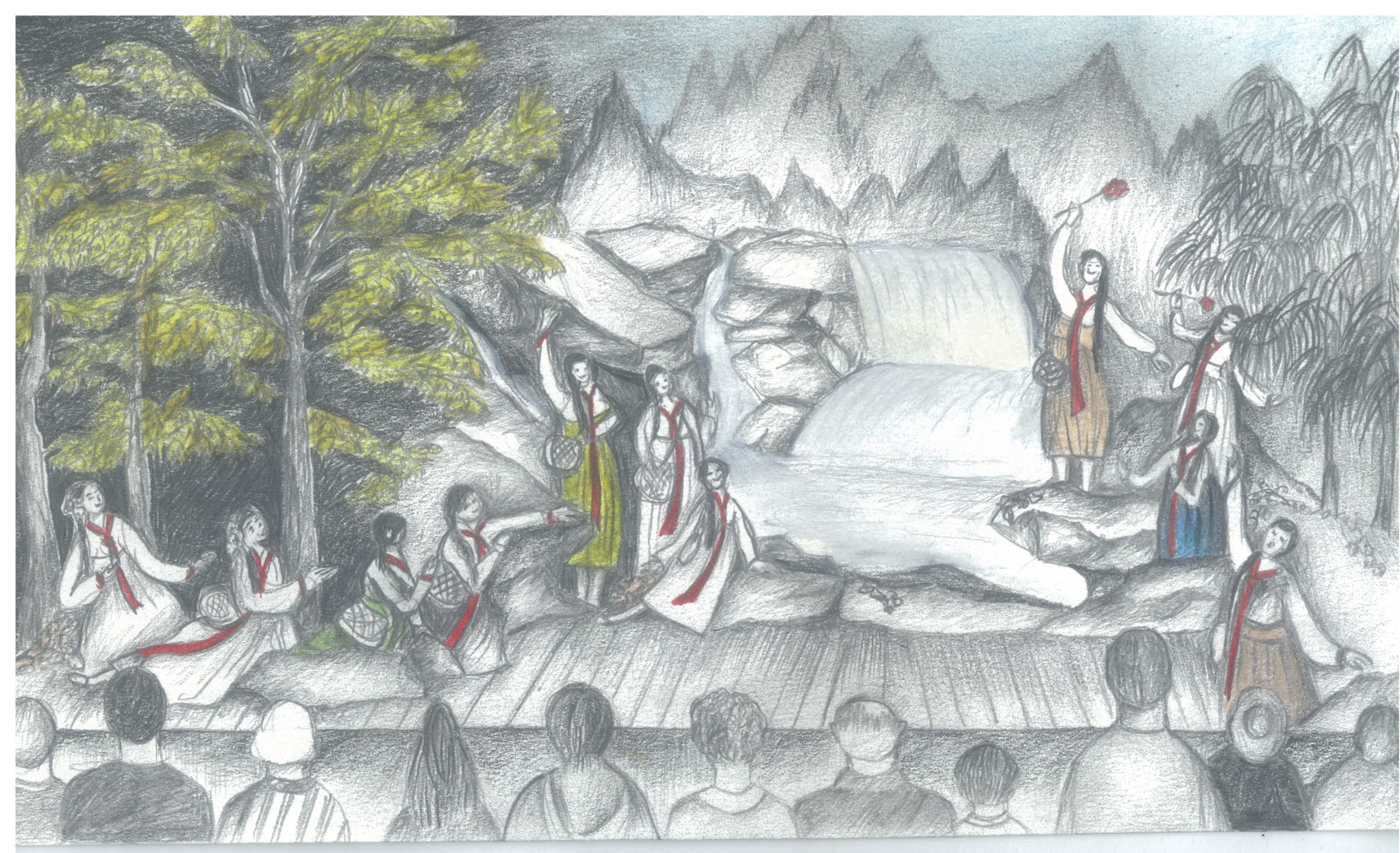
You know you’re in the delusional underworld when you feel better by blurring the lines between man-made fiction and reality. Questionable spiritual practices and random enjoyable to consume Bullshit live here, as well as many political ideologies, urban legends, and almost all conspiracy theories.
Just like all underworlds, this one can seem situationally useful to reset or heal from damage. But unlike LOTR or World of Warcraft, you don’t recognize that this is not the real world, and your feelings may tell you that it is. We’ll talk more about this concept and its limited uses in the Religion post. Delusions are very addictive in the long term, as you gradually end up in social and online filter bubbles, supporting your false beliefs.
The delusional underworld’s power over society can grow in bad times or times that are perceived as bad (Hi, pre-Brexit UK!). In those cases, a political leader who both creates and feeds on delusions is a national or even worldwide danger. This is what led to the election of Hitler (democratically elected!) and Donald Trump, who I’m sure would love to be sharing this sentence with Hitler.
In some European countries (like Germany), populism is less likely to take hold of the political reality, because of better education and living people who remember the scars of fascism, communism, and autocratic regimes, which are ideologies of the Delusional Underworld.
Everyone looking for self-help in the delusion underworld thinks they are in the right place to improve in the Game of Self. And while it may work short-term (after all, you really draw the picture you think you’re drawing), the disconnection from reality means failing in the Game of Life.
It’s typical for people stuck unhappily in probabland to escape to the delusion underworld, as it’s a welcoming place where you feel loved, understood, and you meet other believers, some of whom may be wonderful people.
Remember, this is a filter bubble for the mind, like escaping from war to a safe prison. It’s a big trade-off, and the problem is you won’t realize it is among the notable emotional improvements. Truth is not a priority for your emotions and instincts and while it may sound harsh, science has long found there is no defense mechanism in your brain or body against believing in any amount of bullshit for the rest of your life! This is why I stress the limited short-term-only usefulness of this place.
The underworlds are a complex topic I’ll mostly leave to professional psychologists, focusing instead on the good stuff – our progress in the Game of Self and the Game of Life. Progress there will naturally decrease time spent in the underworlds and the dreaded probabland, therefore working for any people who haven’t already taken a dive too deep in their muddy waters.
The Game of Self and the Game of Life:
Expectations vs Reality
So, what is life made of again?
Game of Self: a strive for internal growth
Type: subjective by nature (you build your own truth in real-time)
Goal: Personal growth (love, values, Intuition, knowledge, habits)
Tools: self-knowledge, copy-paste, concentration of strength, Chaos
Problems: fear, Inertia, the underworld, and probabland sinks of time and energy
Game of Life: a strive for resources
Type: objective by nature (understanding the world is critical)
Goal: resources (freedom, people, health, assets)
Tools: science, Structure, copy-paste, Chaos, Creativity
Problems: fear, inertia, the underworld, and probabland sinks of time and energy
Have you seen this quote?
Hard times create strong men, strong men create good times. Good times create weak men, weak men create hard times. – G. Michael Hopf
Hard times historically created untrustworthy men who tended to kill each other. If there was strength, it was not scalable enough to create good times, unless an exceptional leader very rarely succeeded in bringing better times (often at great cost!). But these exceptions are few and far between.
But reframed, on an individual level, it might make much more sense.
Good times gradually create inertia
Inertia eventually brings the Game of Life to a crash
A crash strengthens the Game of Self and lets it change
A strong Game of Self leads to a stronger Game of Life
A strong Game of Life gradually creates good times
It’s what usually happens to most people, but it’s not good times that stop us from improving our Game of Life; it’s inertia. There are two more effective ways to keep pushing progress forward, with no crash-and-burn phases needed.
If you aim high in the Game of Life, you’ll be able to consider many results a “failure”. This way, changes to your Game of Life are more likely, and inertia doesn’t stand a chance. But first, you need to know how to handle failure like a Hunter.
Every time things don’t turn out well in the Game of Life, it’s your special time to rise and shine in the Game of Self. Use the the Game of Life fails to shake you up to a good Change. Failure shows Progress just as much as Success does, because outside these two, there is only inertia.
Once you’ve progressed in your Game of Life, you’ll have more resources at hand.
Sharing your time or money with others is a powerful tool that enhances both your internal and external world.
Dedicate your efforts in the Game of Life to serving others. Resources you win can be shared any way you like, there are plenty of people in need.
This conscious decision will make you feel better in every possible way, forever. There is plenty of evidence that sharing brings joy and long-term happiness. And this diminishes fears and Inertia, improving the Game of Self.
In fact, sometimes focusing on the Game of Life creates the necessary conditions for personal growth better than looking deeply into the self. Setting goals in the Game of Self and trying to measure things that can’t be measured often creates pressure and confusion.
To balance both the Game of Life and Game of Self, leave the pressure behind.
- You don’t need to obsess over self-help and personal growth.
This creates enormous pressure and might end up harming you. - Don’t set specific goals, the games go on 24/7. Enjoy life as it unfolds. Waiting sucks!
- Don’t try to measure things that can’t be measured happiness, self-fulfillment, joy, and love cease to exist when measured. If you’re always looking for concrete results, you will often end up disappointed.
- The less time you spend in probabland and the underworld, the more natural progress will happen in the games.
There is no problem focusing on the Game of Life like you mostly do…the Game of Self is everywhere within every experience, anytime. Just let it happen. Let change be the new normal.
Thank you for reaching the end of our monstrous post! Please share it with people who spend a lot of time in probabland and the underworld.
- Freud, S. Preface. Introduction to Psychoanalysis. 1917. https://www.sigmundfreud.net/introduction
- Beck, J. Preface. Cognitive Behavior Therapy, Second Edition Basics And Beyond. The Gilford Press, 2011.
https://archive.org/details/

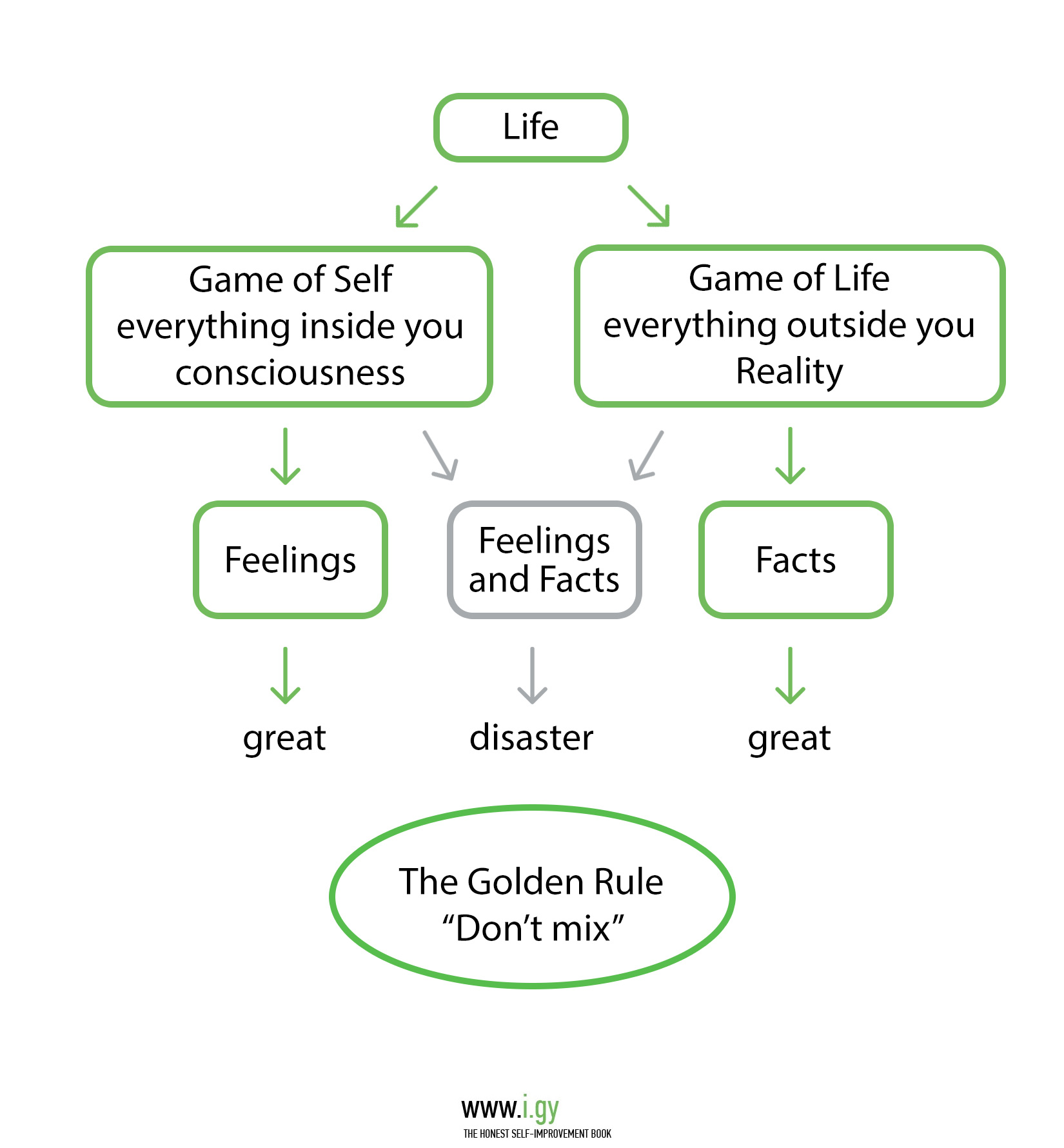
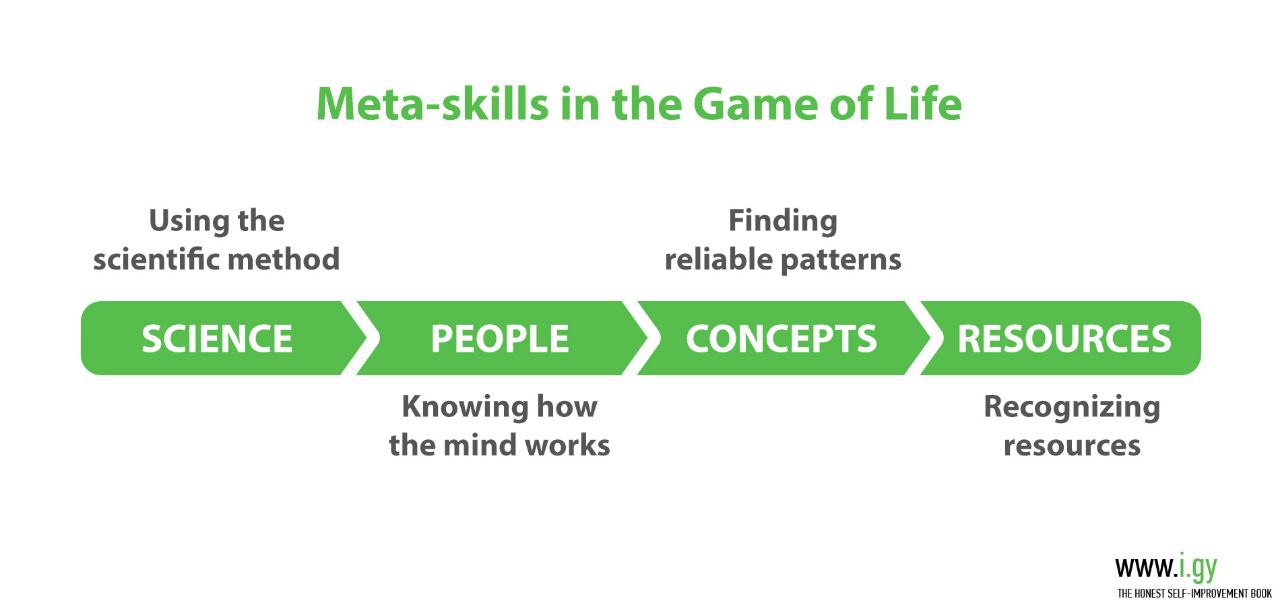
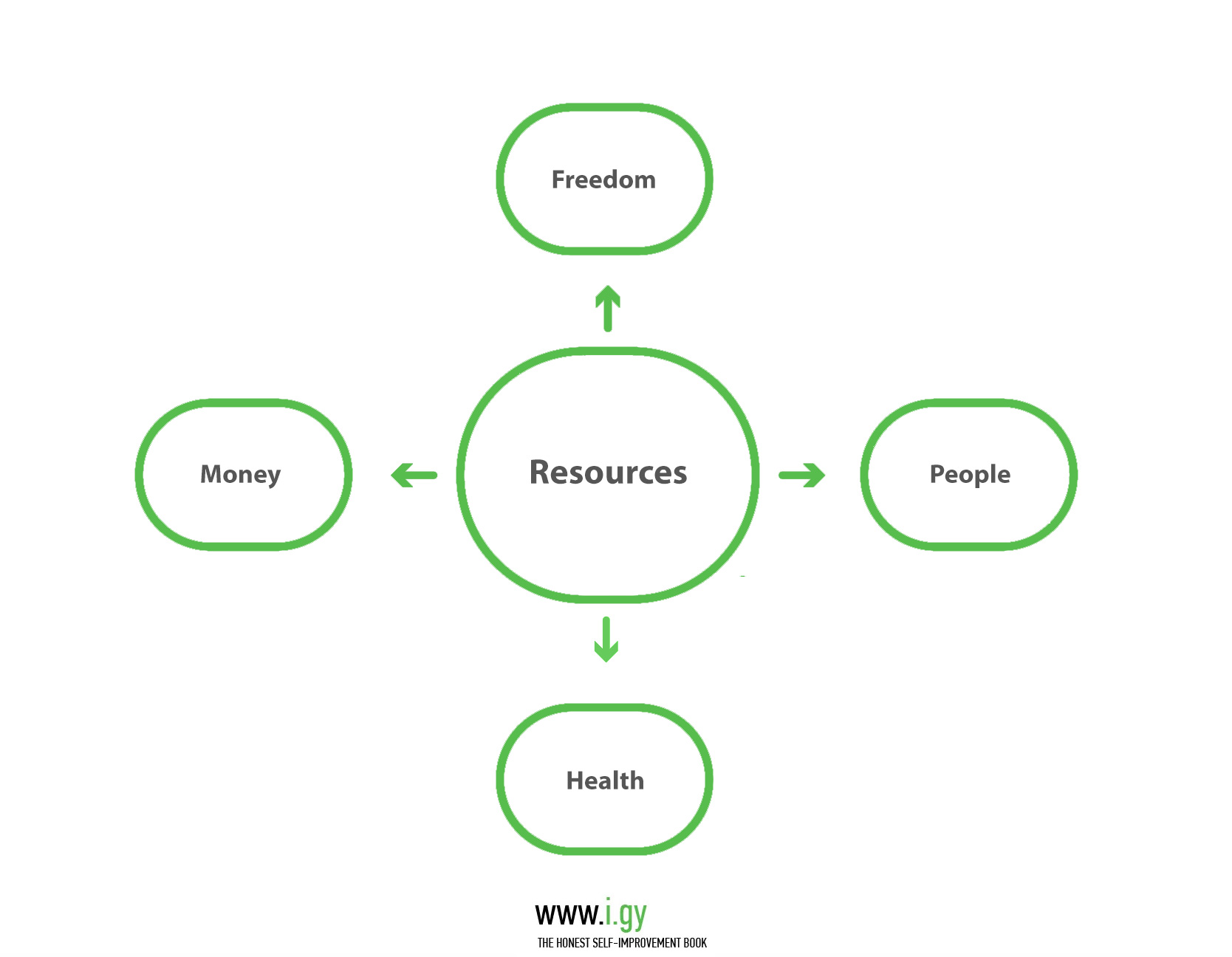
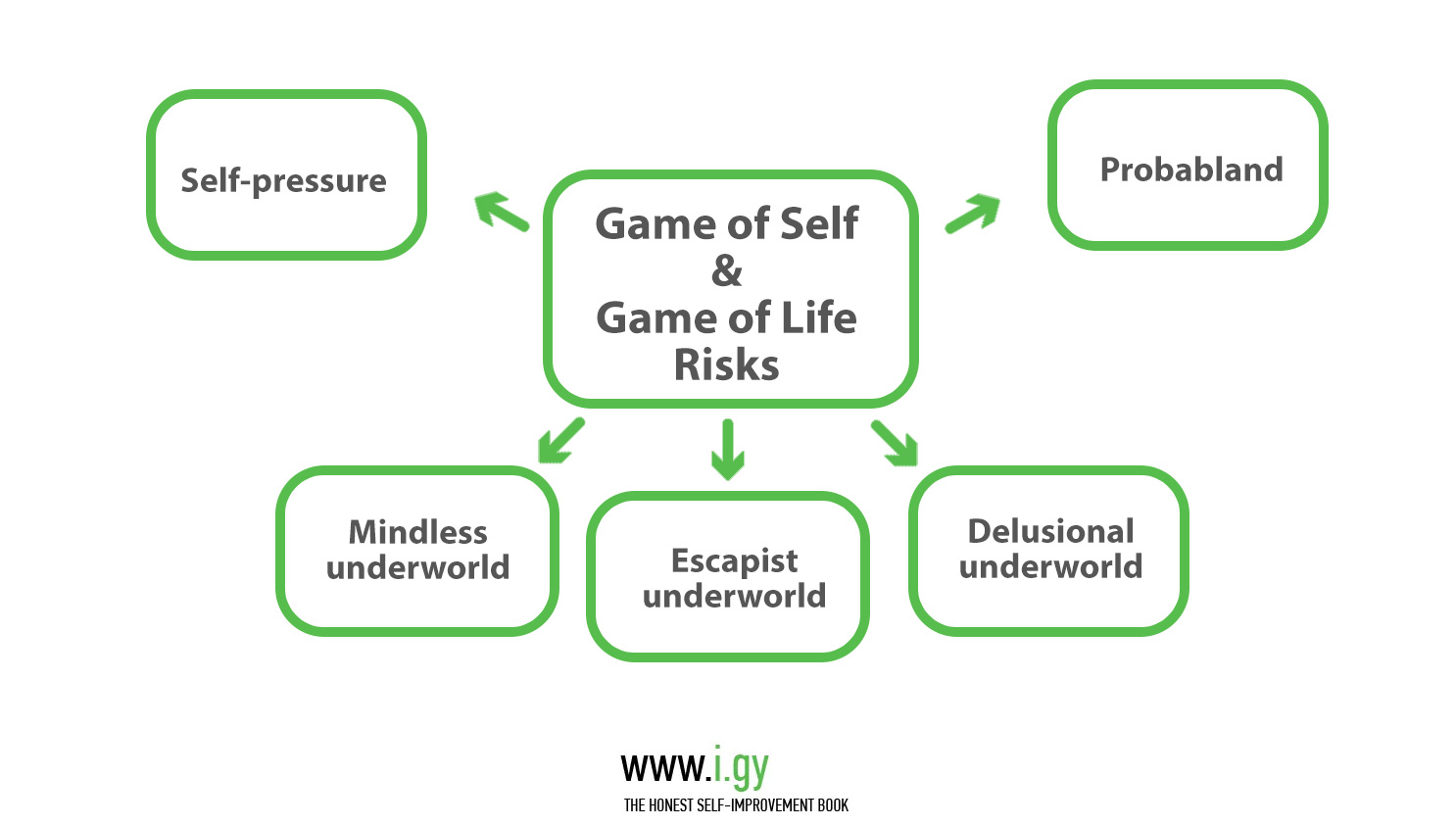
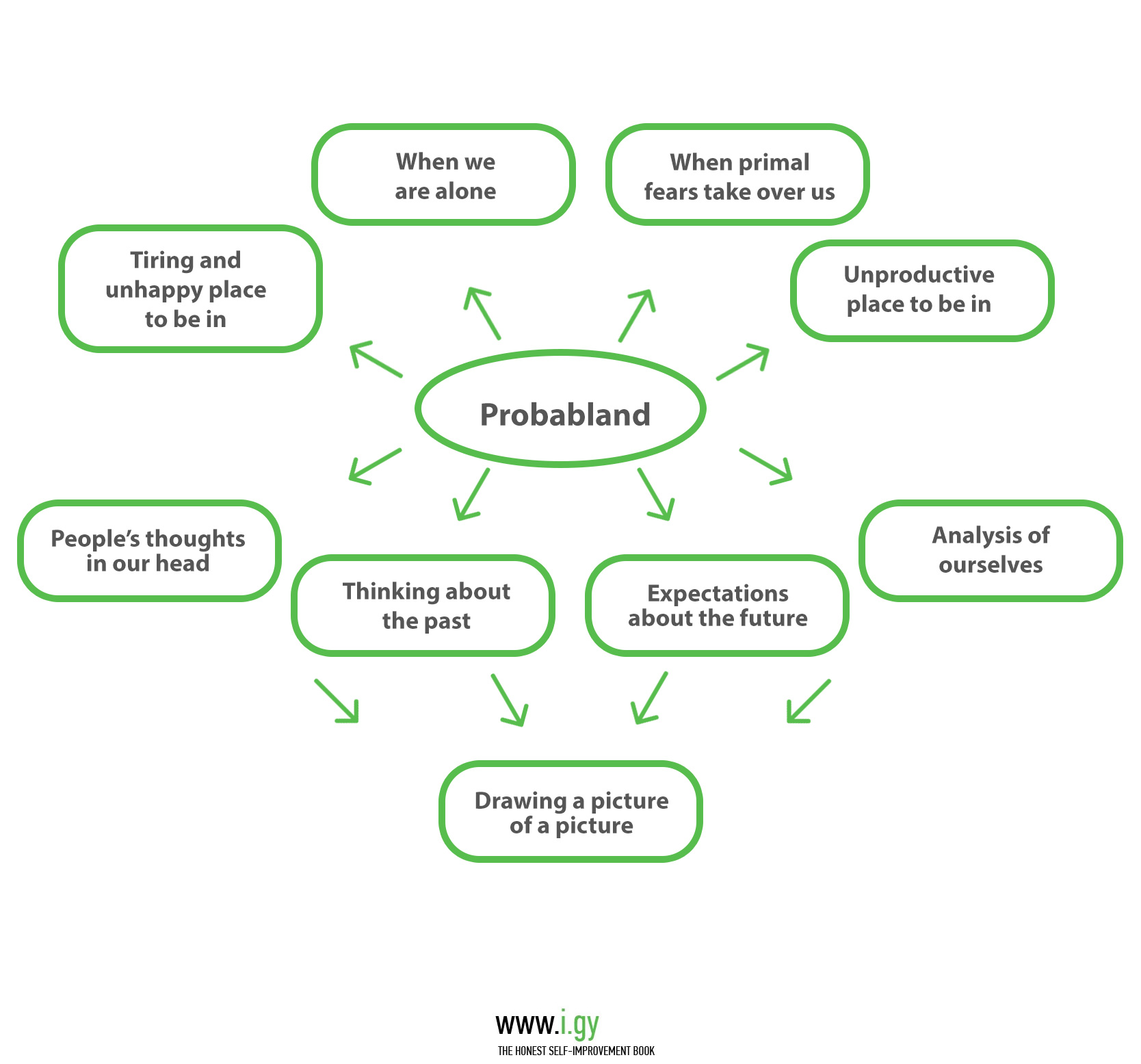
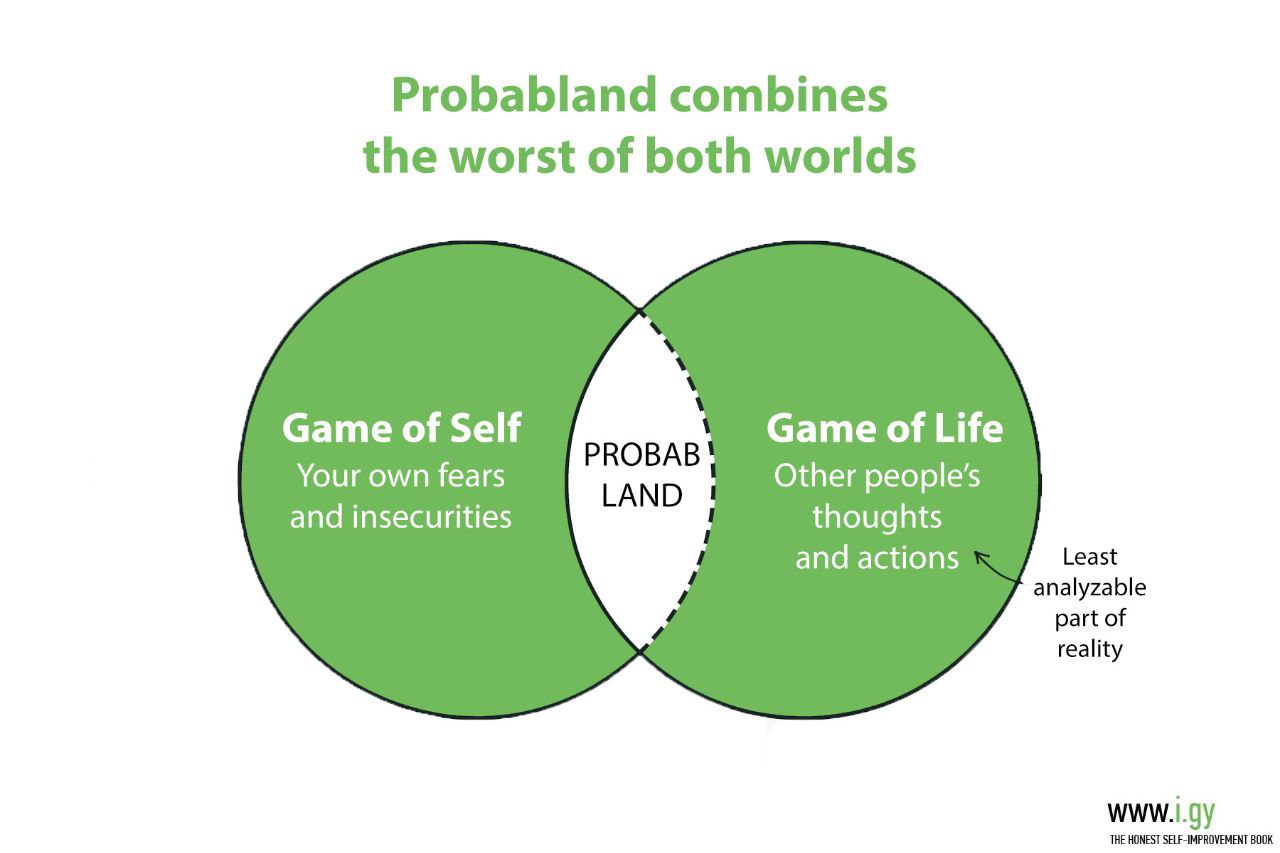
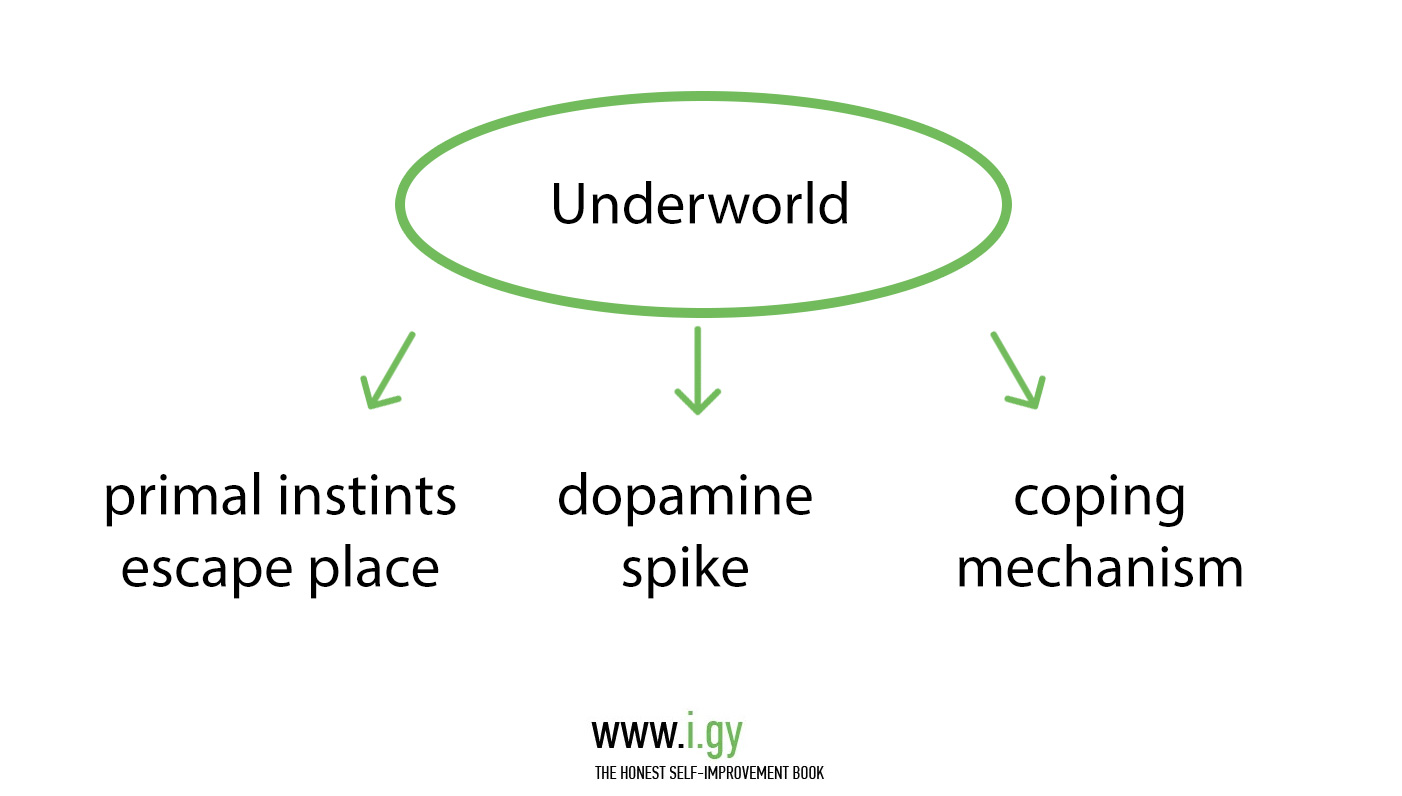
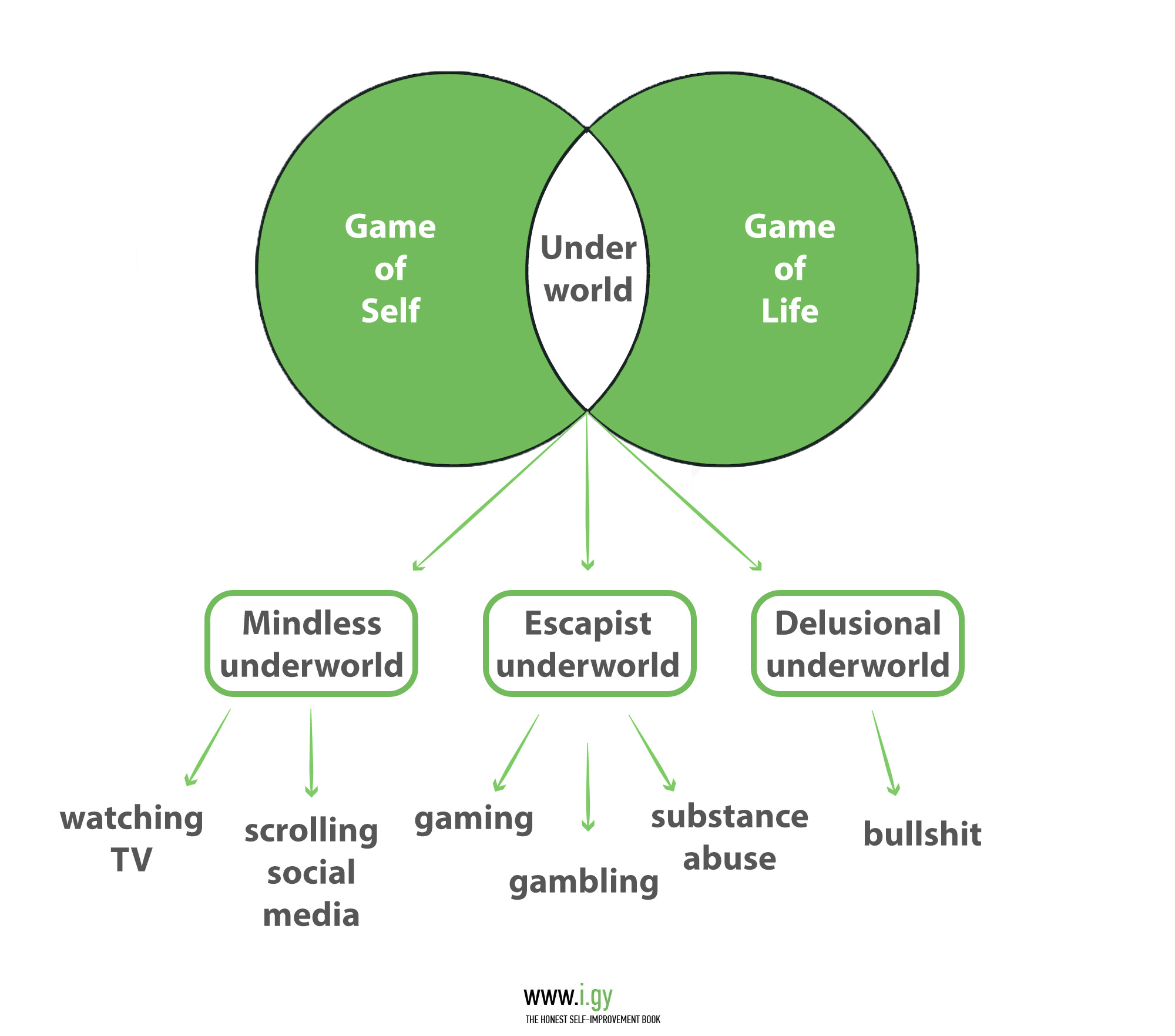
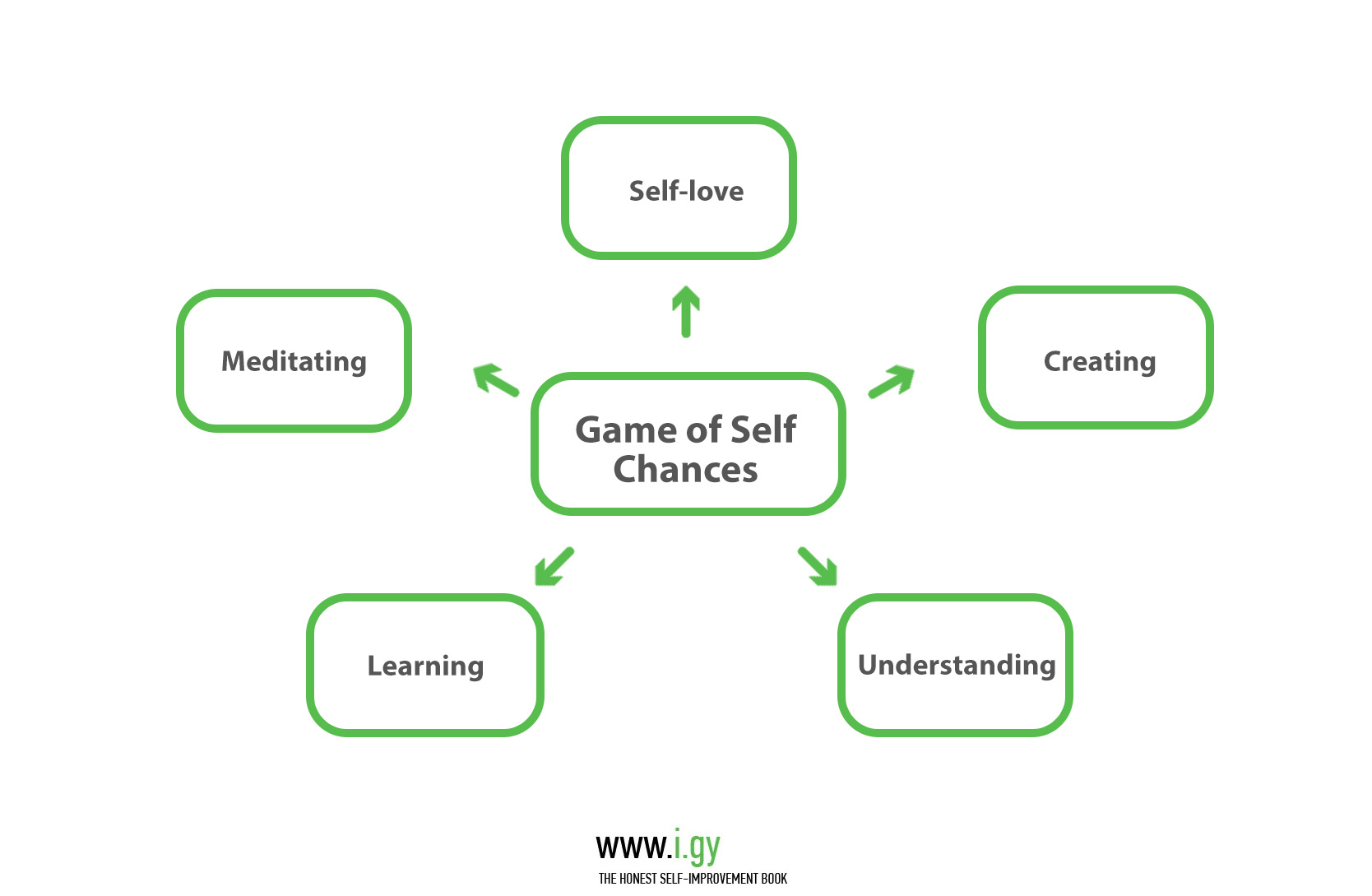
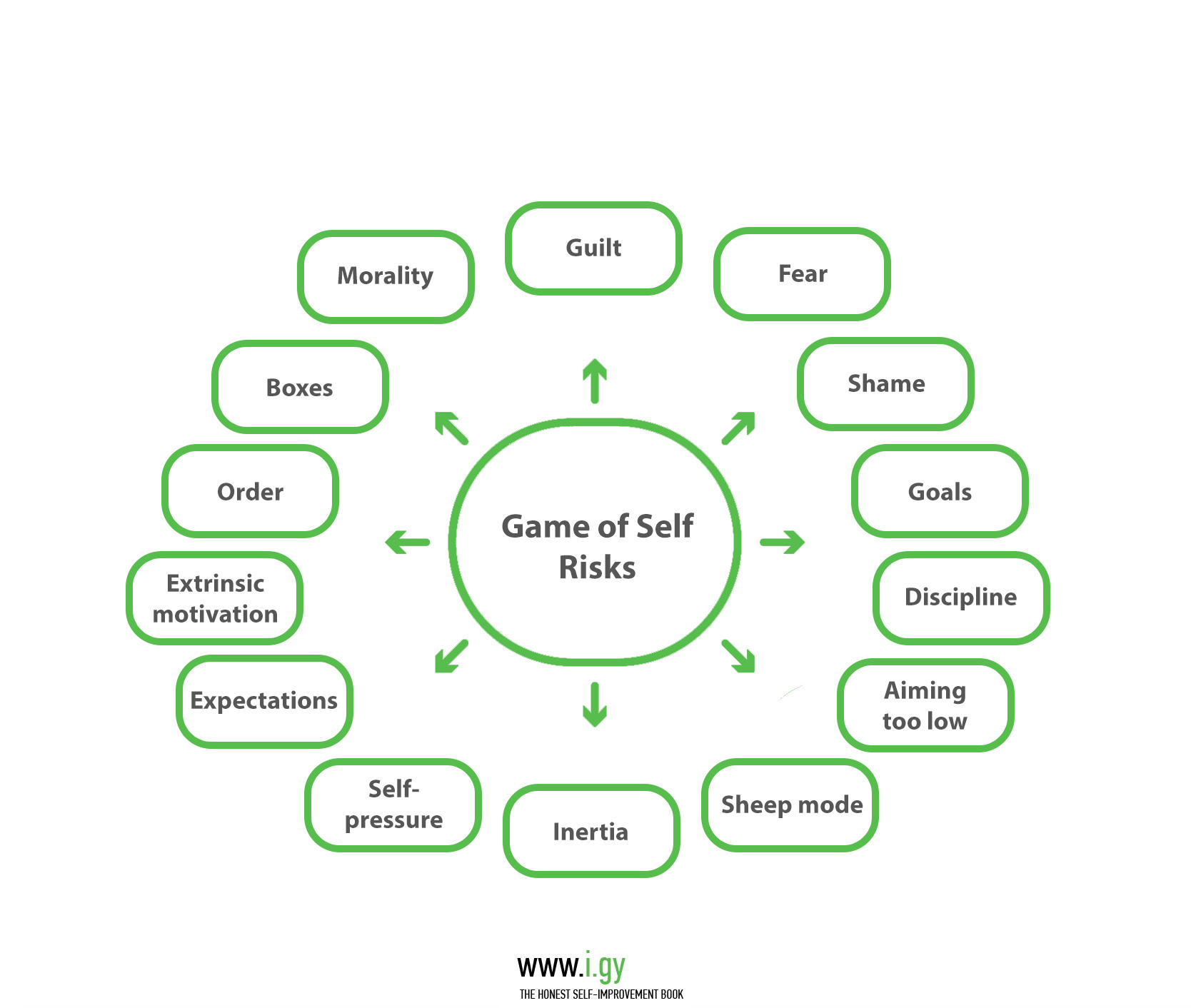
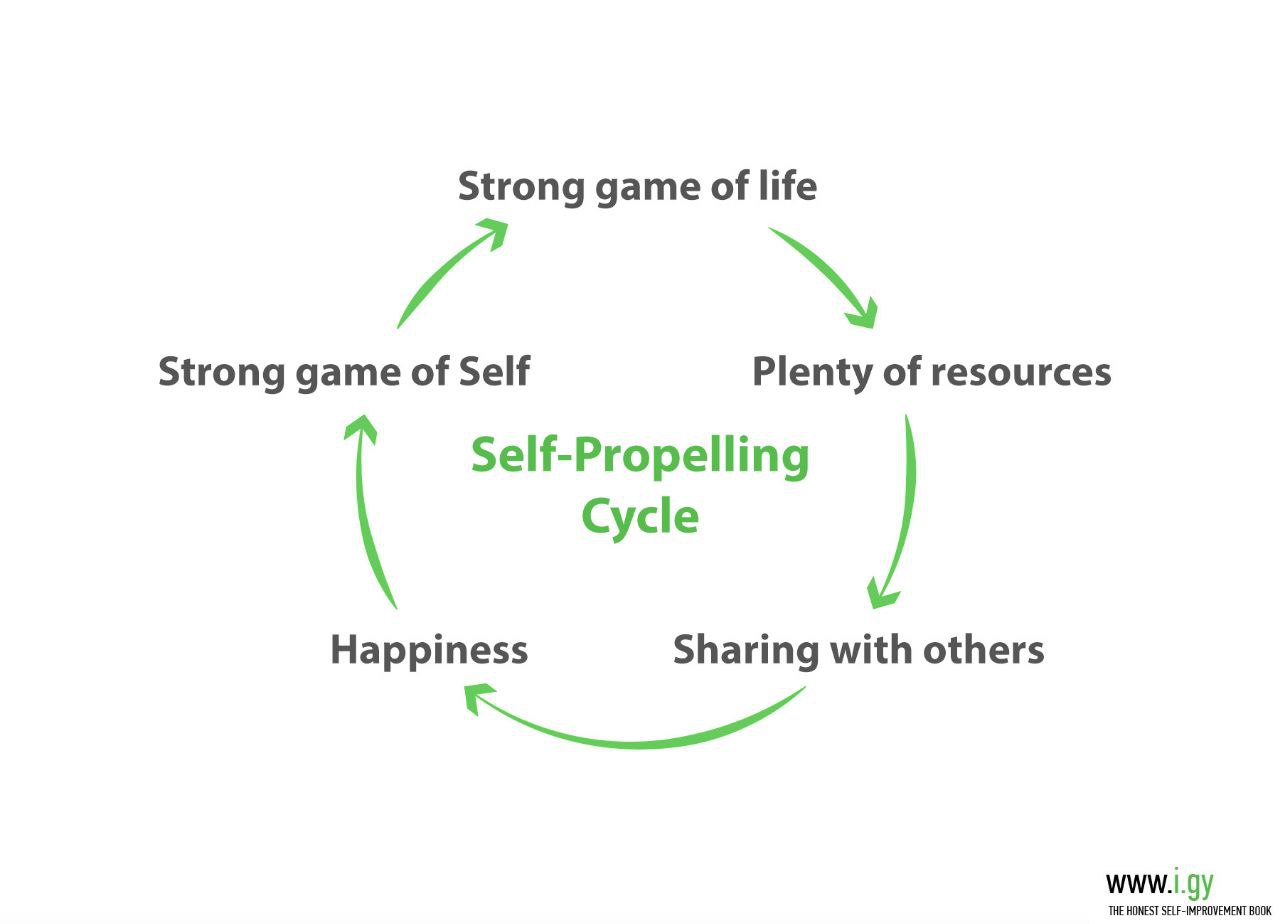
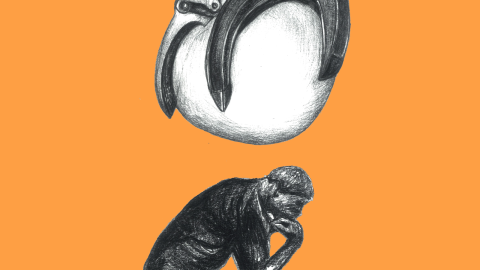
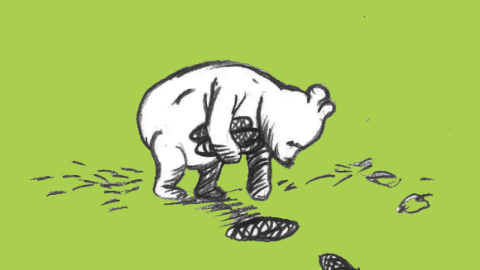
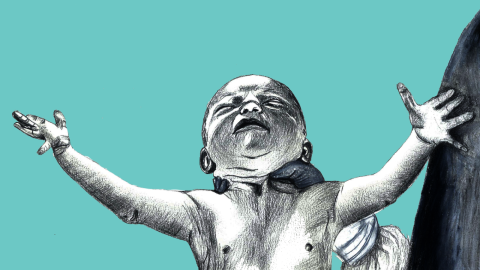
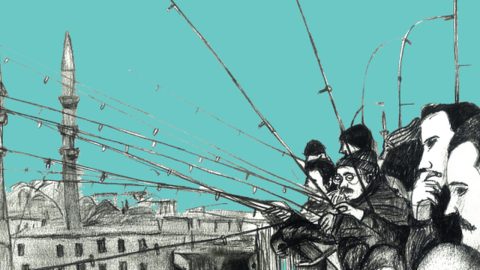
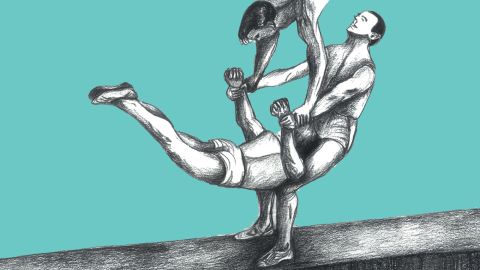
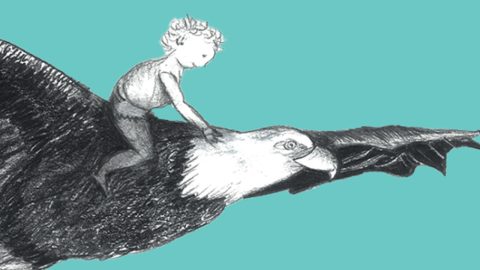
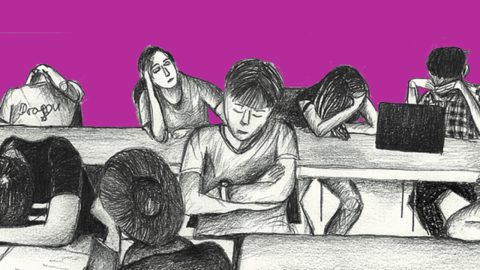





















I love that I allowed my conscience to be open to discover this.